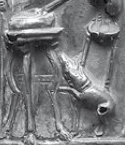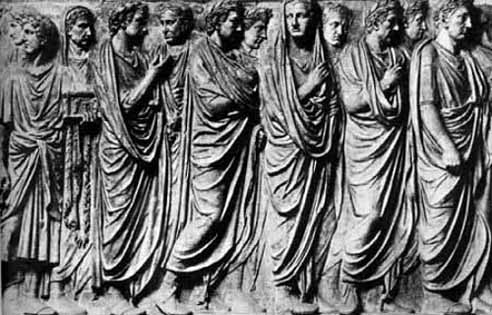An Epicurean Test of Whether a Desire is Contrary to Nature
 Seneca’s Letters – Book I – Letter XVI: This also is a saying of Epicurus: “If you live according to nature, you will never be poor; if you live according to opinion, you will never be rich.” Nature’s wants are slight; the demands of opinion are boundless. Suppose that the property of many millionaires is heaped up in your possession. Assume that fortune carries you far beyond the limits of a private income, decks you with gold, clothes you in purple, and brings you to such a degree of luxury and wealth that you can bury the earth under your marble floors; that you may not only possess, but tread upon, riches. Add statues, paintings, and whatever any art has devised for the luxury; you will only learn from such things to crave still greater. Natural desires are limited; but those which spring from false opinion can have no stopping point. The false has no limits.
Seneca’s Letters – Book I – Letter XVI: This also is a saying of Epicurus: “If you live according to nature, you will never be poor; if you live according to opinion, you will never be rich.” Nature’s wants are slight; the demands of opinion are boundless. Suppose that the property of many millionaires is heaped up in your possession. Assume that fortune carries you far beyond the limits of a private income, decks you with gold, clothes you in purple, and brings you to such a degree of luxury and wealth that you can bury the earth under your marble floors; that you may not only possess, but tread upon, riches. Add statues, paintings, and whatever any art has devised for the luxury; you will only learn from such things to crave still greater. Natural desires are limited; but those which spring from false opinion can have no stopping point. The false has no limits.
When you are traveling on a road, there must be an end; but when astray, your wanderings are limitless. Recall your steps, therefore, from idle things, and when you would know whether that which you seek is based upon a natural or upon a misleading desire, consider whether it can stop at any definite point. If you find, after having traveled far, that there is a more distant goal always in view, you may be sure that this condition is contrary to nature.
Beautifully stated. Note also how the living of a “rich” life is equated with living “according to nature,” much like living happily is equated with living “justly, honestly, and wisely” in Principle Doctrine 5. And this is the philosophy which has been dismissed for two thousand years with a wink and a smile by our world elites as hedonistic and being devoted to sensuality and the pleasures of the flesh.

